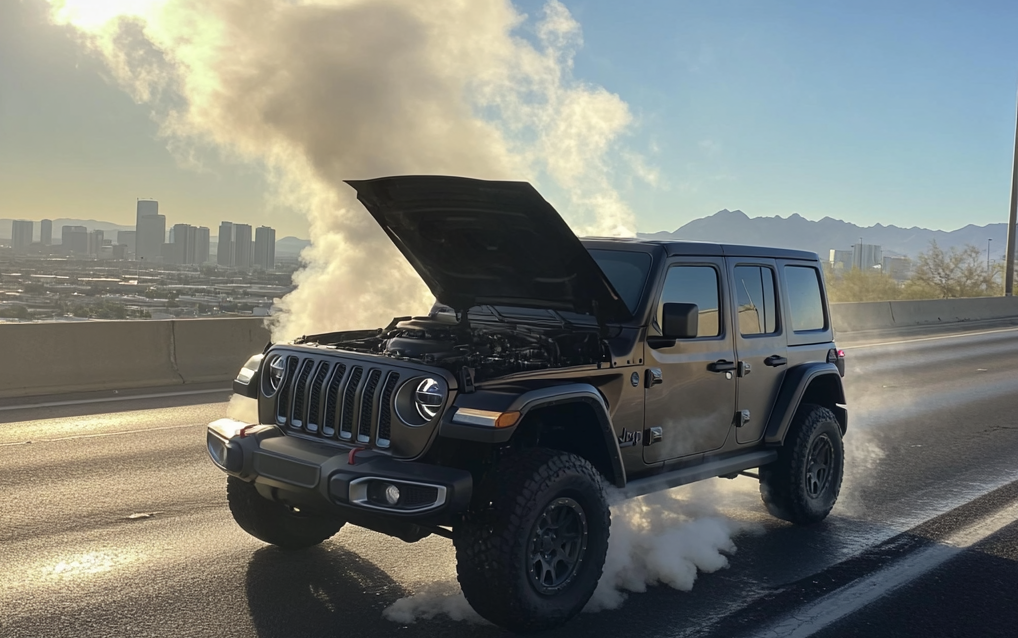Phoenix, with its relentless high temperatures, can pose a significant challenge to your vehicle’s health and performance. The extreme heat can accelerate wear and tear on various components, making it essential for vehicle owners to understand the potential impacts and preventative measures. Here’s how the blazing Phoenix heat affects your car and what you can do to mitigate the damage.
Battery Life
Impact of Heat on Batteries
The extreme heat in Phoenix can cause the fluid in your car battery to evaporate, resulting in decreased battery life and potential failure. The high temperatures can also increase the rate of chemical reactions within the battery, which may lead to corrosion and a shorter battery lifespan.
What to Do
- Regular Inspections: It’s crucial to regularly inspect your battery for any signs of leakage, corrosion, or damage. Clean the terminals if you notice any buildup.
- Stay Cool: Parking in shaded areas or using car covers can help reduce the impact of the heat. Also, consider a battery insulation kit to keep your battery cooler.
- Professional Check-ups: Have your battery tested by a professional to ensure it’s in good working order, particularly before and after the peak summer months.
Coolant System
Impact of Heat on Coolant Systems
The oppressive heat can put extra strain on your car’s cooling system, leading to potential overheating. A compromised coolant system might not effectively regulate your engine’s temperature, increasing the risk of engine failure.
What to Do
- Check Coolant Levels: Regularly check the coolant levels in your car and top off if necessary. Ensure the coolant mixture is correct—typically a 50/50 mix of water and antifreeze.
- Inspect for Leaks: Keep an eye out for coolant leaks under your car or on engine components. Leaks can quickly lead to overheating issues.
- Routine Maintenance: Schedule regular maintenance to flush and refill the coolant system, ensuring it operates at peak efficiency.
Tire Pressure
Impact of Heat on Tire Pressure
High temperatures can cause the air inside your tires to expand, leading to over-inflation and an increased risk of blowouts, especially if the tires are already worn.
What to Do
- Check Tire Pressure Regularly: Use a reliable tire pressure gauge to monitor the pressure levels in your tires, adjusting them according to the manufacturer’s recommended levels.
- Inspect Tread Wear: Heat can exacerbate existing tire wear, so regularly inspect the tire tread for signs of damage and replace if necessary.
- Consider Heat-Resistant Tires: Investing in tires designed to withstand higher temperatures can provide added safety and performance during the hot months.
Overheating
Impact of Overheating
Overheating is a common concern in the Phoenix heat, with the potential to cause serious engine damage if not addressed promptly. It can lead to warped components or even a seized engine.
What to Do
- Monitor Temperature Gauge: Keep an eye on your car’s temperature gauge while driving. If you notice it rising to the danger zone, pull over safely and turn off your engine.
- Stay Stocked with Supplies: Keep coolant and a gallon of water in your car, which can come in handy if your car starts overheating.
- Service Your Vehicle Regularly: Routine check-ups can help identify and fix any components that might lead to overheating, such as faulty thermostats or fan issues.
Phoenix’s scorching heat can significantly affect your car’s battery, coolant system, tires, and overall performance. By taking proactive measures such as regular inspections, routine maintenance, and adjustments for the extreme conditions, you can help ensure your vehicle remains reliable and safe even in the most sweltering temperatures. Contact us today if you’d like us to do a thorough inspection of your vehicle to make sure your car is ready for the Phoenix heat.





